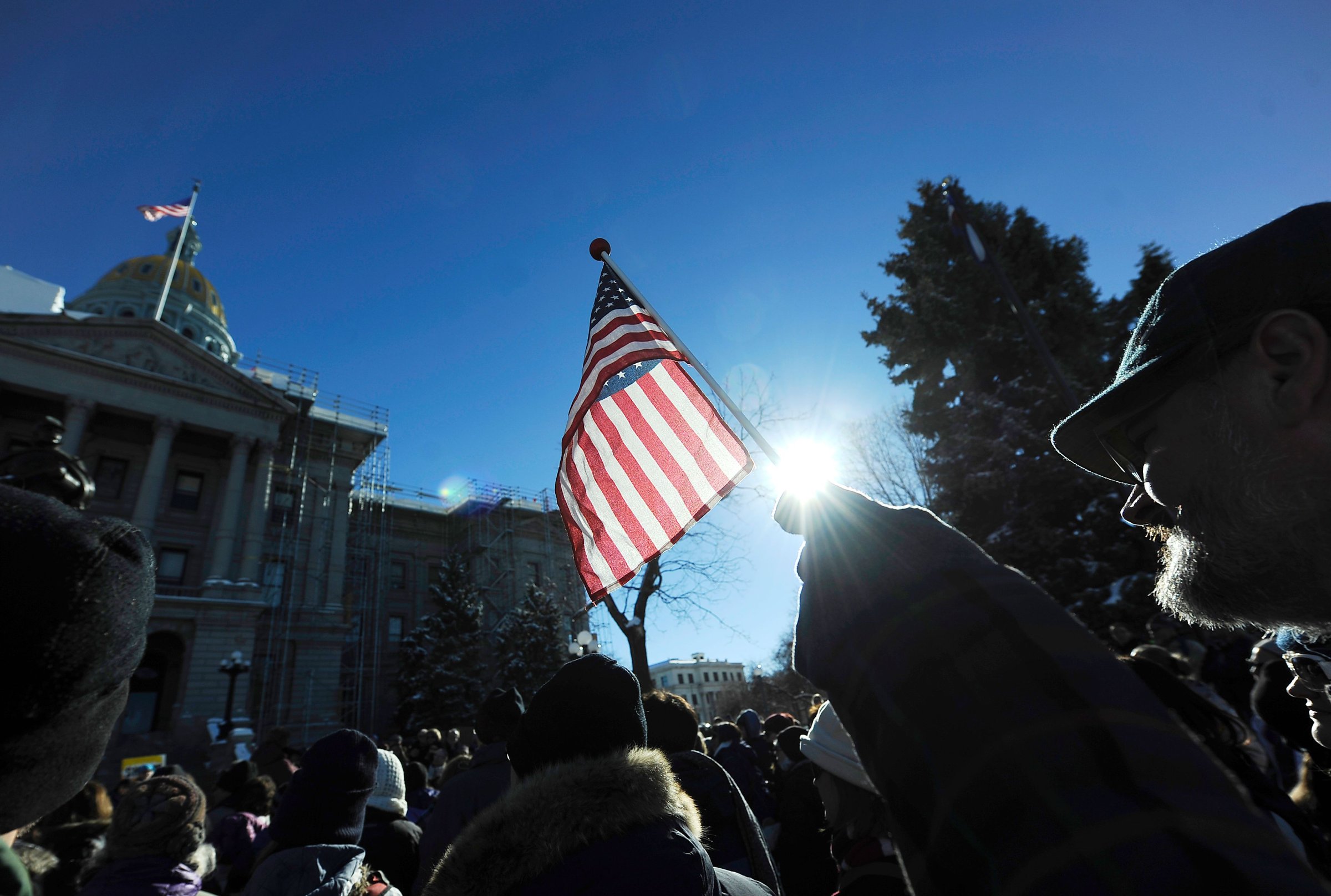
After what many have described as the most unprecedented presidential election in modern U.S. history, it seems little has changed. Presidential politics still dominates the headlines.
Unless you tune out, turn off or simply run away, it’s easy to let the prevailing tide of partisanship and civil division steamroll even the most diplomatic among us. In fact, a CNN poll showed that 53 percent of Americans were dreading the thought of talking politics over Thanksgiving dinner after such a contentious political season. The same will be true of Christmas.
It’s easy to believe that America has somehow been permanently injured, that we have little hope of ever coming back together. But this polarizing tug-of-war is nothing new to the American experiment.
Thomas Jefferson, while acting as Secretary of State in George Washington’s Cabinet, went as far as establishing a newspaper,The National Gazette, in order to viciously besmirch his political foes—Washington included—as disloyal and even treasonous. In perhaps the most famous personal conflict in American history, sitting Vice President Aaron Burr shot and killed the former Secretary of the Treasury, Alexander Hamilton, in their infamous duel. And let us not forget the great crucible of the Civil War, which nearly ripped the nation into two literal parts but for the sacrifice of hundreds of thousands of American lives.
We have been divided as a nation before—much more so than we are even now—and these divisions have spurred us forward as a people. Previous eras of discord did not doom America. Rather, we have, time and again, gone on to survive and even thrive.
It was the Civil War that gave us emancipation; the Great Depression that inspired FDR to declare our “freedom from fear”; it was Pearl Harbor that led Allied Forces toward establishing the longest era of peace among Western Nations in history; it was Dr. King’s marches that ended Jim Crow and segregation; and it was a Cold War that helped catapult us to the moon.
This current division can ultimately result in our finest hour, too. Times like these have a way of shaking us from our self-imposed silos to a place of honest self-reflection—if we allow them to.
As a pastor who loves America and wants nothing but the best for her, allow me to quote from Ecclesiastes 7:18, which reveals a profound and simple truth:
It is good to grasp the one and not let go of the other. Whoever fears God will avoid all extremes.
These timeless words, written thousands of years ago, remind us there is wisdom in moderation. They are a guard against becoming so convinced of the rightness of our own political opinions—wherever they are on the political spectrum—that we lose touch with each other.
It is good to have opinions and to defend those ideas in the public square (or the dinner table, beside a willing audience) with as much eloquence, wit and persuasion as you can summon. That is the essence of the democracy we are all so fortunate to call home.
More Must-Reads from TIME
- Donald Trump Is TIME's 2024 Person of the Year
- Why We Chose Trump as Person of the Year
- Is Intermittent Fasting Good or Bad for You?
- The 100 Must-Read Books of 2024
- The 20 Best Christmas TV Episodes
- Column: If Optimism Feels Ridiculous Now, Try Hope
- The Future of Climate Action Is Trade Policy
- Merle Bombardieri Is Helping People Make the Baby Decision
Contact us at letters@time.com